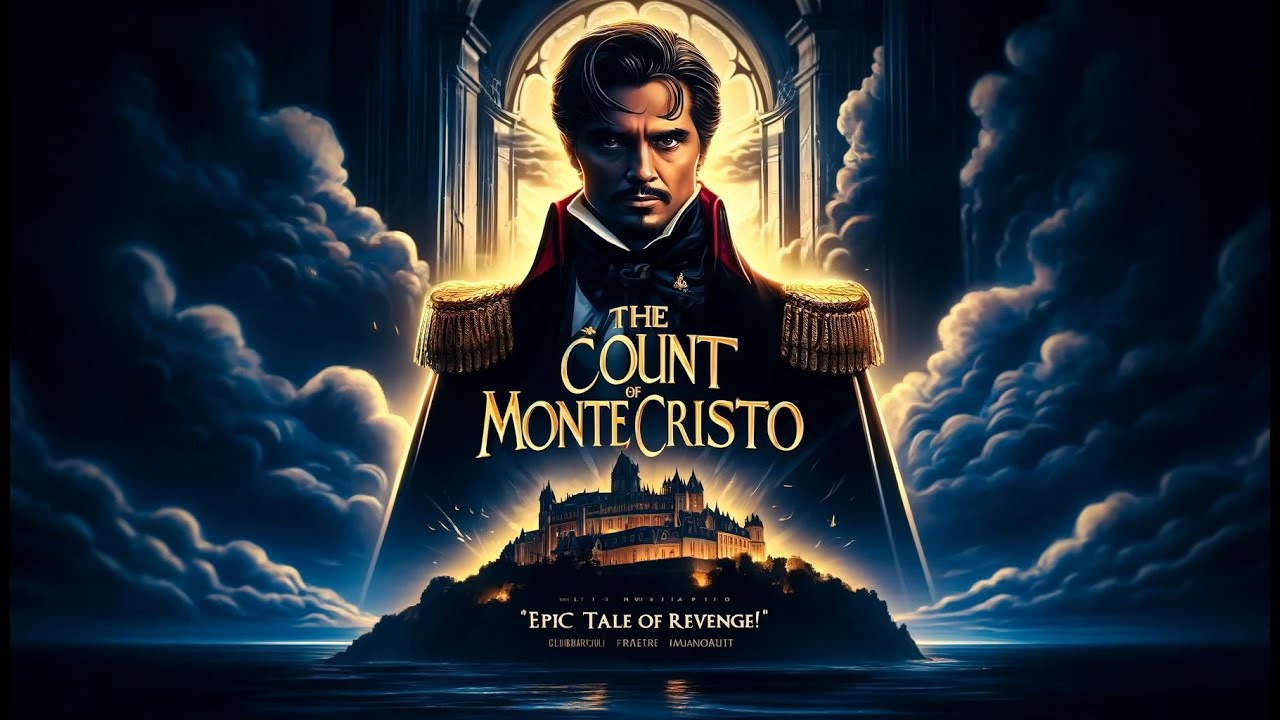A Critical Review Of The Count Of Monte Cristo: Revenge, Betrayal, And Redemption

Table of Contents
Edmond Dantès's Descent into Despair and the Seeds of Revenge
Edmond Dantès begins as a young, optimistic sailor, deeply in love with Mercédès. His life is filled with promise—a captaincy awaits, and his marriage to his beloved is imminent. This idyllic existence is shattered by a cruel conspiracy hatched by Fernand Mondego (driven by jealousy), Danglars (fueled by avarice), and Villefort (motivated by self-preservation). These betrayals lead to Edmond's unjust imprisonment on the island of Monte Cristo, a pivotal moment that irrevocably alters his life.
- The injustice of his imprisonment: Falsely accused of treason, Edmond's pleas fall on deaf ears, highlighting the corruption and injustice within the French legal system.
- The loss of Mercédès and his future: The separation from his beloved Mercédès, believing him dead, and the destruction of his dreams inflict profound emotional wounds.
- The psychological impact of confinement: Years of unjust confinement chip away at Edmond's optimism, slowly replacing it with a burning desire for revenge. The harsh conditions and despair he endures shape his transformation.
- The encounter with Abbé Faria and the acquisition of knowledge and wealth: His imprisonment is not without a silver lining. His encounter with Abbé Faria, a fellow prisoner, proves transformative. Faria shares his vast knowledge, educating Edmond in various fields and revealing the location of a hidden treasure – a treasure that empowers Edmond's elaborate plan for revenge.
The Count's Elaborate Scheme of Revenge
Escaping prison, Edmond Dantès, now the wealthy and enigmatic Count of Monte Cristo, embarks on a meticulously planned quest for vengeance. He systematically targets his betrayers, using his newfound wealth, intellect, and social connections to dismantle their lives. His actions are marked by an almost chilling precision, showcasing both his intelligence and his capacity for cruelty.
- The manipulation of financial markets: The Count skillfully manipulates the financial markets, destroying Danglars's fortune and exposing his fraudulent dealings.
- The use of social connections and influence: He utilizes his social standing and carefully cultivated relationships to undermine Fernand's reputation and career.
- The psychological torment inflicted on his enemies: The Count's revenge is not merely financial or social; it's deeply psychological, designed to inflict maximum emotional pain. He revels in exposing their lies and driving them to despair.
- The strategic use of information and blackmail: The Count employs blackmail and strategic leaks of sensitive information to further destabilize his enemies' lives.
The Moral Ambiguity of Revenge
The Count's actions raise significant ethical questions. Is his revenge justified, given the profound injustices he suffered? The novel doesn't offer easy answers. While the reader sympathizes with Edmond's suffering, the collateral damage caused by his pursuit of vengeance raises concerns. The line between justice and revenge becomes increasingly blurred.
- The impact of the Count's actions on innocent individuals: In his quest for vengeance, the Count inadvertently harms innocent individuals connected to his enemies. This highlights the devastating consequences of unchecked revenge.
- The exploration of themes of justice and morality: Dumas masterfully explores the complexities of justice and morality, prompting the reader to question the ethical implications of revenge.
- The question of whether the ends justify the means: This central question remains a constant throughout the novel, forcing readers to confront the moral ambiguities of Edmond's actions.
Redemption and Finding Peace
Despite the brutality of his quest for revenge, Edmond Dantès ultimately finds a path towards redemption. This transformation is not immediate; it is gradual, fueled by compassion and forgiveness. His relationships with Haydée, a young woman he rescues from slavery, and his acts of charity and generosity, demonstrate a growing capacity for empathy and selflessness.
- His evolving relationship with Haydée: Haydée's presence in his life helps to soften the hardened edges of his personality, offering him a glimpse of genuine connection and love beyond the confines of revenge.
- His acts of charity and generosity: He uses his wealth to help those in need, demonstrating a growing sense of social responsibility that counterbalances his past actions.
- His ultimate decision regarding his enemies: The Count makes a conscious choice about the ultimate fate of his enemies, showing a newfound understanding of forgiveness and the limitations of revenge.
- The lasting impact of his experiences: His experiences, both positive and negative, profoundly shape his character, leading to a more mature and compassionate individual.
Conclusion
The Count of Monte Cristo is more than just an adventure novel; it is a powerful exploration of revenge, betrayal, and the possibility of redemption. Dumas masterfully crafts a narrative that keeps readers engaged while forcing them to confront difficult questions about justice, morality, and the human capacity for both cruelty and compassion. The enduring appeal of the novel lies in its timeless themes and unforgettable characters. Edmond Dantès's journey is a testament to the resilience of the human spirit and the enduring power of forgiveness.
Dive into the captivating world of The Count of Monte Cristo and explore its timeless themes of revenge, betrayal, and the ultimate possibility of redemption. Consider further exploring other works by Alexandre Dumas or delving into other classic revenge narratives to expand your understanding of this complex and compelling literary theme.

Featured Posts
-
 Kentucky Derby 2025 Betting Odds Top Contenders And Predictions
May 04, 2025
Kentucky Derby 2025 Betting Odds Top Contenders And Predictions
May 04, 2025 -
 Kolkata To Sizzle Temperature Forecast Above 30 C In March
May 04, 2025
Kolkata To Sizzle Temperature Forecast Above 30 C In March
May 04, 2025 -
 Tioga Downs Announces Plans For Its 2025 Racing Season
May 04, 2025
Tioga Downs Announces Plans For Its 2025 Racing Season
May 04, 2025 -
 Chefsache Esc 2025 Sonderedition Fuer Deutschland Gestartet
May 04, 2025
Chefsache Esc 2025 Sonderedition Fuer Deutschland Gestartet
May 04, 2025 -
 The Count Of Monte Cristo A Comprehensive Review For Modern Readers
May 04, 2025
The Count Of Monte Cristo A Comprehensive Review For Modern Readers
May 04, 2025
